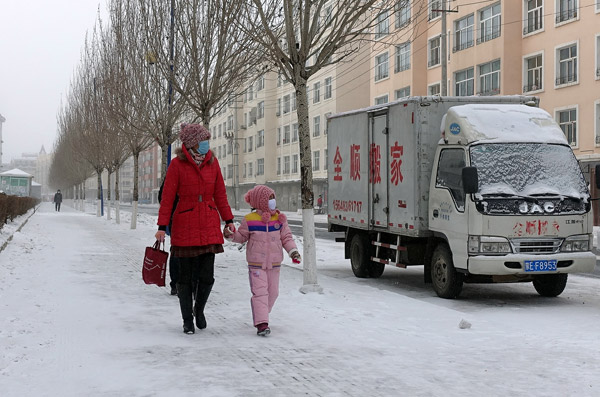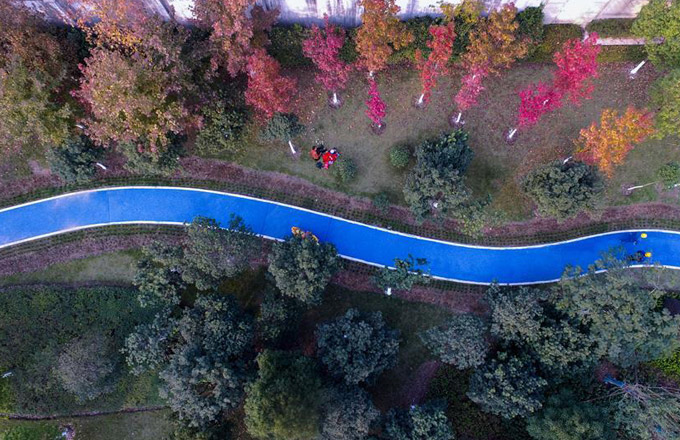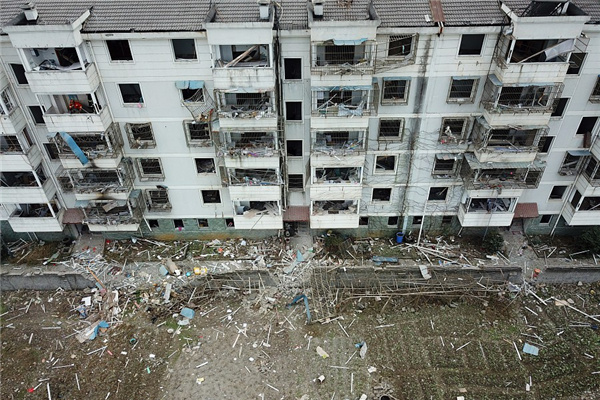Temperatures to plunge as icy fingers grip Heilongjiang
 |
|
Residents stroll on a frozen street in Yakeshi, Inner Mongolia autonomous region, on Tuesday, wearing thick clothes and masks. [Photo by YU CHANGJUN/FOR CHINA DAILY] |
The Greater Hinggan Mountains region in Heilongjiang province is likely to see temperatures as low as - 38 C over the next two days, weather forecasters say.
The lowest temperature dropped to - 40.8 C on Saturday for the first time this winter at Dabai Mountain, according to Wu Shuqin, an observer at the Greater Hinggan Mountains Observatory.
The temperature increased slightly on Sunday and Monday, but it is expected to drop again, Wu said.
The region, regarded as the coldest in China, usually sees winters lasting eight months. Its record low temperature is - 52.3 C.
According to Wu, the expected temperature drop over the next two days is linked to a cold front that will first hit Northeast China and the Inner Mongolia autonomous region, before moving south.
According to the National Meteorological Center, the front will cause temperatures to drop 10 to 14 degrees, and even 16 degrees in some places, over the next three days.
In central and eastern China, the cold air will also bring strong winds and sharp drops in temperatures through Thursday, the center said.
Despite the extreme cold weather, border police will continue to patrol the China-Russia border in Mohe county, Heilongjiang province, China's northernmost county and part of the Greater Hinggan Mountains.
"When we started patrolling at 7:30 this morning, the snow was more than kneedeep, and the sharp ice sheets along the river made things difficult," said Zhang Chunmao, a border patrol officer. "It took us three hours to make a trip that usually requires only one hour. I wrapped myself up in thick clothes, but the bitter wind still cut through them."
Gao Junfeng, head of the police station, said: "As winter tourism becomes popular, more tourists travel north to experience the extremely cold weather or explore the aurora borealis. Some will lose their way in the forests and snowy lands."
Gao added that the station will strengthen controls and look out for the safety of locals and tourists through foot patrols and video surveillance.






















